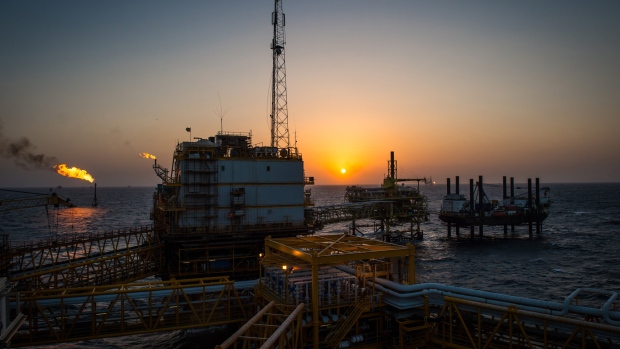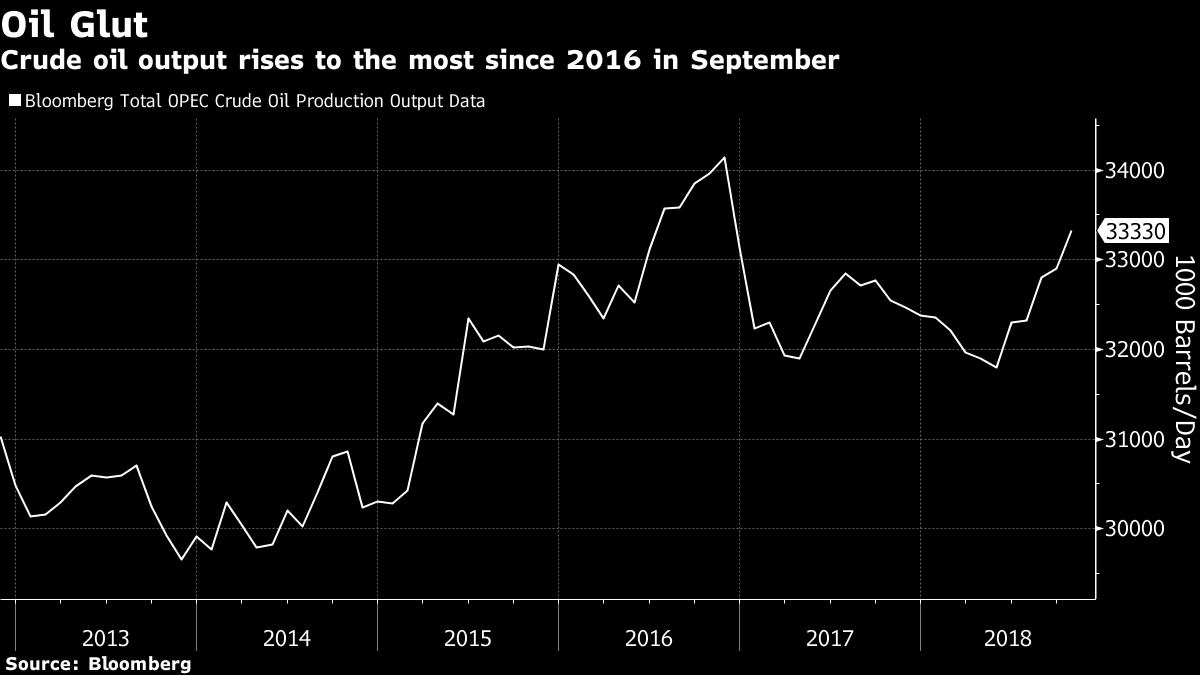Nov 12, 2018
'Double whammy' of oil rising with U.S. dollar back to haunt EM
, Bloomberg News

Emerging markets are already contending with U.S.-China trade tensions, policy tightening in developed countries, and a resurgent U.S. dollar. Higher oil prices are exactly what they don’t need right now.
But that’s what they may get as the year draws to an end. With crude oil in a bear market, Saudi Arabia said OPEC and its allies should reverse about half the increase in output they made earlier this year as fears of shortages are supplanted by concerns about oversupply and collapsing prices. Oil futures in New York climbed as much as 1.6 per cent.
Rising oil prices risk fueling inflation, raising import bills and forcing tighter monetary policy in developing nations that buy crude. They may also weigh on global growth, hitting even those countries that export the commodity. Here’s what some investors and analysts had to say:
- Nigel Rendell, a London-based senior analyst at Medley Global Advisors:“It creates a double whammy for many EM policy makers - even more of a weaker local currency is now required to buy what has become a higher dollar oil price. The pass-through of a rising oil price to domestic consumer prices tends to be fairly quick and direct. Plus, of course, there are second-round effects, through rising transport costs. Central bankers ignoring a higher oil price do so at their peril, as it can easily become the catalyst to permanently higher inflation expectations and missed inflation targets”
- Delphine Arrighi, a money manager at Merian Global Investors in London:“Rising oil prices would more likely add to concerns over already weakening global growth. We’ve seen oil prices rising for the better part of the year, which has put pressure on the currencies of oil importers, like India or Turkey. But oil producers have not seen much appreciation in their currencies, despite improving terms of trade, as fears of a trade war leading to a global growth-slowdown have weighed on sentiment more”
- Christopher Shiells, a London-based emerging-markets analyst at Informa Global Markets Ltd.:“For those emerging markets that run large external imbalances and import oil, it is another reason to be wary especially as higher oil prices are not being driven by strong global growth”
- Jakob Christensen, an analyst at Danske Bank A/S:“The combination of a stronger dollar and rising oil prices will create pressures, especially on those emerging markets that are oil importers and have large refinancing needs like Turkey, Argentina, India and South Africa” Anders Faergemann, a London-based fund manager at PineBridge Investments:“EM is less sensitive to oil-price fluctuations now compared to history. Individual countries are still vulnerable to oil price fluctuations but, for instance, the universe of corporate issuers is less concentrated in energy names than perceived by investors. In reality, the energy sector is approximately 15 per cent of the benchmark CEMBI Broad Diversified index”
- Anastasia Levashova, a fund manager at Blackfriars Asset Management in London:“I don’t think oil prices will rise. Despite the U.S. putting sanctions on Iran on Nov 4, the oil price actually dropped, so clearly the market thinks that there will be no shortage of oil in coming months. Moreover, OPEC+ are talking about cuts as they think oil can go lower, so I think worries about oil spiking higher are a bit exaggerated”





